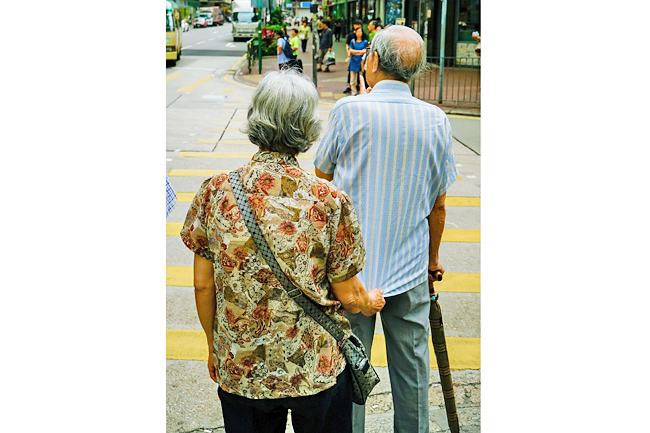Teddy Amenabar
THE WASHINGTON POST – Experts predict that the number of centenarians – people who live to be at least 100 years old – will continue to rise in the coming decades.
While genetics play a large role in healthy ageing, physical activity, social support and where you live also can influence your chances for living a very long life.
Sister André, a French Catholic nun born Lucile Randon, who was the world’s oldest living person, recently died at the age of 118. Now the two oldest living people are believed to be María Branyas Morera, a 115-year-old Spanish woman born in the United States (US), and Fusa Tatsumi, who lives in Osaka, Japan, who is also 115 but 52 days younger than Morera, according to a database by the Gerontology Research Group.
Based on a 2022 estimate by the United Nations (UN), there are 593,000 centenarians around the world. It’s a fast-growing age group. The UN projects there will be 3.7 million centenarians alive by 2050.
DID YOU WIN THE GENETIC LOTTERY?
Experts who study the expanding human life span say the reason someone may live beyond 100 years starts with their DNA – the genes they’ve inherited from their parents.
“You can’t make it out that far without having already won the genetic lottery at birth,” said professor of public health S Jay Olshansky at the University of Illinois at Chicago. “So, rule number one is going to be genetics.”


The longer your parents live, the more likely you’ll live a healthier, longer life, experts say. Scientific director Luigi Ferrucci at the National Institute on Ageing, said the children of centenarians typically live healthier, longer lives than their peers.
“It’s probably not one single gene but a profile, a combination of genes,” Ferrucci said.
LIVING TO 100 COMPLICATES RETIREMENT
Director of the Institute for Ageing Research Nir Barzilai at the Albert Einstein College of Medicine in the Bronx, has studied the lives of hundreds of centenarians, the people they’ve married and their kids. The children of centenarians are “about 10 years healthier” than their peers, Barzilai said.
Barzilai is working with others to enroll 10,000 centenarians, their children and a control group from the general population to identify the different genes that contribute to a long life. People who have a certain mutation on their growth hormone, for example, are “very likely to live longer” because their cells spend more energy on maintaining existing cells, not growing new ones, Barzilai said.
The plan is to use artificial intelligence to help find the genes and develop drugs from them,
“We really want to find all the longevity genes,” Barzilai said.
Olshansky said he and his colleagues are preparing to launch a platform in February where people can upload data from a genetic testing service to identify whether they have genes “associated with exceptional longevity”, so they can plan financially for retirement.
“I’m a carrier, for example, of two sets of genes that are associated with longevity,” Olshansky said. “For planning purposes, I probably need to delay retirement.”
ENVIRONMENT AND LIFESTYLE COUNT
Experts disagree on how much genetics influence a person’s life span vs their lifestyle. But most experts say that good genes will only get you so far.
Assistant professor of gerontology Jamie Justice at Wake Forest University, said some research has suggested that genetics account for around 25 per cent of longevity. The other 75 per cent relates to your environment – where you live, what you eat, how often you exercise and your support system through friends or family.
For those of us who are not endowed with a set of promising genes, the goal isn’t to push the boundaries of human life expectancy, Justice said.
Instead, researchers want to figure out how people can have full, healthy lives with the time they have. “The goal isn’t necessarily to live to 118 years. It’s to live well within those years,” Justice said.
“What individual things do we do that we can really harness our health and live healthier within the years given?”
And, Justice said, a good public health system “can’t be undersold”. If you have a better health-care system, you’re going to have a higher life expectancy, she said.
AND LOCATION MATTERS, TOO
The US and Japan have the most confirmed centenarians and supercentenarians, people who live to be 110 years old or older; and, Japan has the most per capita, according to the director of supercentenarian research Robert Young at the Gerontology Research Group.
But, there are probably more centenarians and supercentenarians we don’t know about. More than 110 years ago, certain countries were better at creating and preserving birth certificates or hospital records, Young said.
A country’s record-keeping a century ago is often the factor determining where confirmed supercentenarians are reported across the world, he said.
“People need to remember that when we’re looking at human longevity today, we’re actually looking more at the state of the world 110-plus years ago,” Young said.
Beyond record-keeping, where someone lives – a war zone, a place with access to quality health care, a country with a lot of pollution, a developed nation where people sit a lot – probably plays a significant role in longevity.
Researchers have recently found “the stress of life directly affects some of the biological mechanisms of ageing”, said Ferrucci, adding that our exposure to various types of pollution can harm our overall health, as well. He called the topic an “expanding area of research” that could revolutionise how we approach public health.
“We are discovering that the secret of good health is not only in our behaviour but it’s also in what our society does to enhance the health of our population,” Ferrucci said.
And, from studying centenarians, Ferrucci said researchers have found that healthy older adults tend to be remain physically active, spend time outside and have strong connections with their friends and family.
“Just walking outside,” makes an enormous difference, Ferrucci said.
“If I had a jewel to give to people who want to live long and well, I would tell them to get up early in the morning and go out,” Ferrucci said.
“That is really the best gift that you can give yourself if you want to achieve longevity.”
Still, Ferrucci said centenarians and especially supercentenarians are often “unique”. Some people have this “biological resilience” to live a long life despite everything going against them.
“There’s the curve of mortality that characterises the general population and then there are these individuals that are unique singularities,” Ferrucci said. “We don’t know how and that is the great secret.”
Experts say the usual advice of regular exercise and eating healthy food applies generally to all ageing adults.



